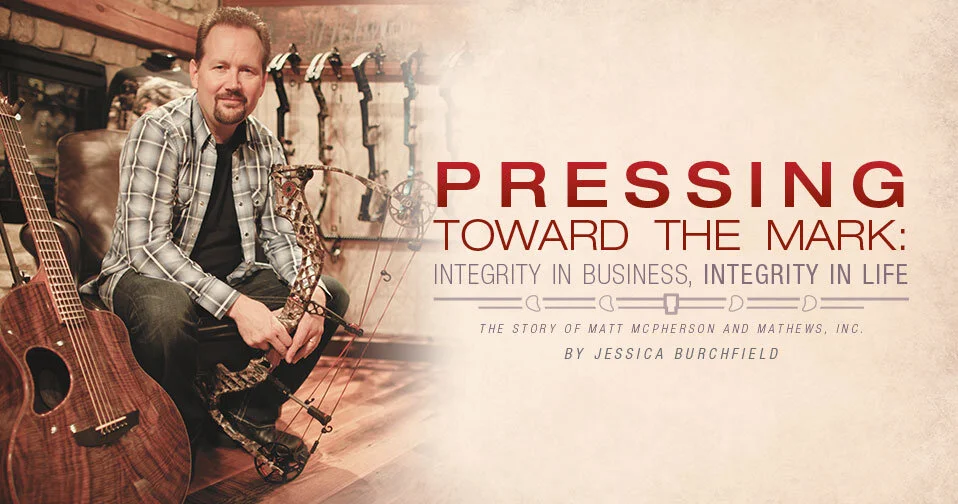How workplace chaplains are changing the face of corporations
This article was originally published here by Made to Flourish
— by Gage Arnold & Made to Flourish
For months at a time, Bill wouldn’t so much as look Rich Langton in the eye.
Every time Langton came through on his weekly chaplaincy rounds at a workshop in Cadillac, Michigan, Bill would turn his head, tip his welding hat down, and get to work.
Even though Bill and Langton hadn’t so much as shared introductions, Bill knew Langton represented something he needed: A source of guidance through unexpected tragedy.
Langton is one of thousands of corporate chaplains serving in U.S. workplaces, from factory floors to C-Suite boardrooms.
On his normal rounds to visit the warehouse, Bill shared with Langton that one of his buddies had an accident on his motorcycle and was in the hospital. Langton went to visit Bill’s friend in the hospital, praying with him and checking in.
The next time Langton walked through the factory, Bill tilted up his welding mask and started yelling, “Hey, everyone, listen up! You guys know I don’t do that whole God thing,” Bill proclaimed. “But Rich is a good guy. I talked to him about something and he helped me and my buddy. If you have something going on, he’ll help you.”
When he finished his announcement, he turned down his welding mask and continued working. Langton believes this moment, while small, “Opened up an area of the shop for me to really have an opportunity to speak into people’s lives,” he said. “It opened up a whole new level.”
A 2018 Barna Group survey noted 53 percent of adults admit to having felt physically or mentally overwhelmed in the past month. As well, less than half of adults profess to feeling satisfaction in any of the following areas: work-life balance, overall rest, relationship boundaries and overall stress. And 71 percent say they feel overwhelmed by information.
Now, more than ever, companies see the proactive value of workplace chaplains. Staffing agencies like Workplace Ministries and Marketplace Chaplains USA in Dallas, Texas, only anticipate that awareness to rise due to increasing workplace and personal stress that infiltrates our jobs.
“People are more isolated, depressed, and disconnected than ever from a true friend or person they can talk to confidentially,” said Jason Brown, vice president of marketing for Marketplace. “The nationwide stats on isolation and depression are staggering.”
A history lesson
In his book, God at Work, Princeton University’s David Miller explores the history of the chaplaincy movement. He contends the shift toward corporate chaplaincy began in American culture around the end of World War II. Army chaplains on the front lines began the conversation about other places chaplains would be helpful.
“The real battles of the faith today are being fought in factories, shops, offices, and farms, in political parties, and government agencies, in countless homes, in the press, radio, and television, in the relationship of nations,” reads a statement cited in the book from the Second World Council of Churches Assembly in 1954. “Very often it is said that the Church should go into these spheres but the fact is, that the Church is already in these spheres in the persons of the laity. . . . It is the laity who draw together work and worship.”
And they left the laity to it, until organizations like Marketplace — founded in Dallas in 1984 — and Corporate Chaplains of America — founded in Wake Forest, North Carolina, in 1996 — opened their doors.
Both Marketplace and Corporate Chaplains of America are chaplain staffing organizations that employ chaplains to serve as pastoral support (daily walkthroughs, crisis care, and more) for employees. Businesses then contract with the staffing organizations directly to obtain these chaplaincy services for their employees.
It took Marketplace founder Gil Stricklin four years to convince Bonneau Companies in Dallas — a Foster Grant sunglass distributor — to become the first company to bring Marketplace chaplains onboard.
“It was a calling by God to start this,” said Jason Brown, vice president of marketing for Marketplace, “and Gil knew the needs were so great.”
Later, Marketplace chaplains spread from Dallas to Waco and then slowly to the Southeast and across the entire continental United States and into Mexico and Canada.
Today, Marketplace staffs more than 16,000 chaplains, making 4,000 weekly visits. These visits normally entail the chaplains making visiting people in offices or workrooms to engage with employees by building and sustaining friendships.
The ROI of chaplaincy
While America has steadily turned away from religion, corporate chaplain agencies are on the rise.
Workplace Ministries now employs about 27 clients in 30 locations and anticipate numbers will continue to grow. Tyson Foods anticipates growth in its chaplaincy team, which includes more than 100 chaplains, and Marketplace has expanded to support international corporate chaplaincy efforts in Brazil, China, Mexico, Taiwan, and Canada.
Part of the reason for the growth is a rising return on investment.
According to a 2014 release from the C12 Group, an executive roundtable for Christian CEOs and owners, General Motors and Ford found a $9 return for every $1 invested in their chaplaincy programs.
“All of these things have a business ROI for companies,” Brown said. “We’re in a war for talent now to get qualified employees. . . . People want to work in a place where they’re valued and cared for, where they’re valued as a person and not an employee identification number, and corporate chaplains are a great way to do that.”
For Christians, bringing faith to the workplace through chaplains seems expedient in a culture that is less and less familiar with it. Twenty-one percent of Americans reported no religious identity in 2016 — up 6 percent from the same poll in 2008.
“With this model, the faith conversations we have are significant,” said Steve Cook, owner of Corporate Chaplaincy Consulting in Madison, Wisconsin.
“The harvest is great and the workers are few,” he added.
‘Ministry in Caesar’s House’
The North American Mission Board sees corporate chaplaincy as “providing ministry in Caesar’s house,” executive director of chaplaincy Doug Carver said. “Paul effectively shared his faith, and we want our chaplains to do the same.” Yet Chaplains are “expected to evangelize, but not to proselytize.”
Many chaplains operate on a permission-based approach to sharing and engaging with employees on spiritual matters.
“The employees choose whether they want to talk to the chaplain,” Brown said. “We just meet people where they are.”
This consent-based approach protects the chaplain and the company itself from a legal standpoint but also presents a fine line to walk in practice.
“Within the workplace we are invited guests, and as invited guests, we don’t walk into the house by kicking the door down,” said Curtis Parker, executive director of operations for North Georgia and East Tennessee at Marketplace. “I wouldn’t want anyone to walk into my house, throw their shoes off, and kick up their feet on the coffee table. In this context, the gospel is usually presented in stages as we earn the right to be heard.”
Chaplains in the workplace “lead to lower employee turnover, higher reported job satisfaction, greater employee productivity and lower absenteeism rates,” according to Corporate Chaplains of America.
The impact of the chaplain, at its best, can reverberate through the entire organization.
Tyson has been lauded as a champion for a “faith-friendly” culture since commissioning a group of chaplains for their 120,000-plus employees in 2000.
“Jon (Tyson) believes it’s the right thing to do for the right reasons,” said Karen Diefendorf, director of chaplaincy services for Tyson. “Our team members are our most valued asset. … We found this is a way to come alongside people as life happens to them. Life comes with us into our workplaces.”
As life comes with us into the workplace, companies are beginning to care for their employees in holistic ways, and chaplains are at the forefront of meeting that need. The faith and work conversation is tangible for these men and women on the frontlines of corporations, and hopefully this is only the beginning of a reverberation of hope and healing that happens within offices and workrooms around the country in the coming years.
Workplace chaplains add invaluable benefit to your teams and employees. If you’re struggling with employee retention, check out our article, “How to Reduce Employee Turnover as a Faith Driven Entrepreneur.”
Related articles
——
[ Photo by Clark Young on Unsplash ]










As your ERG evolves here are a few practical tips.